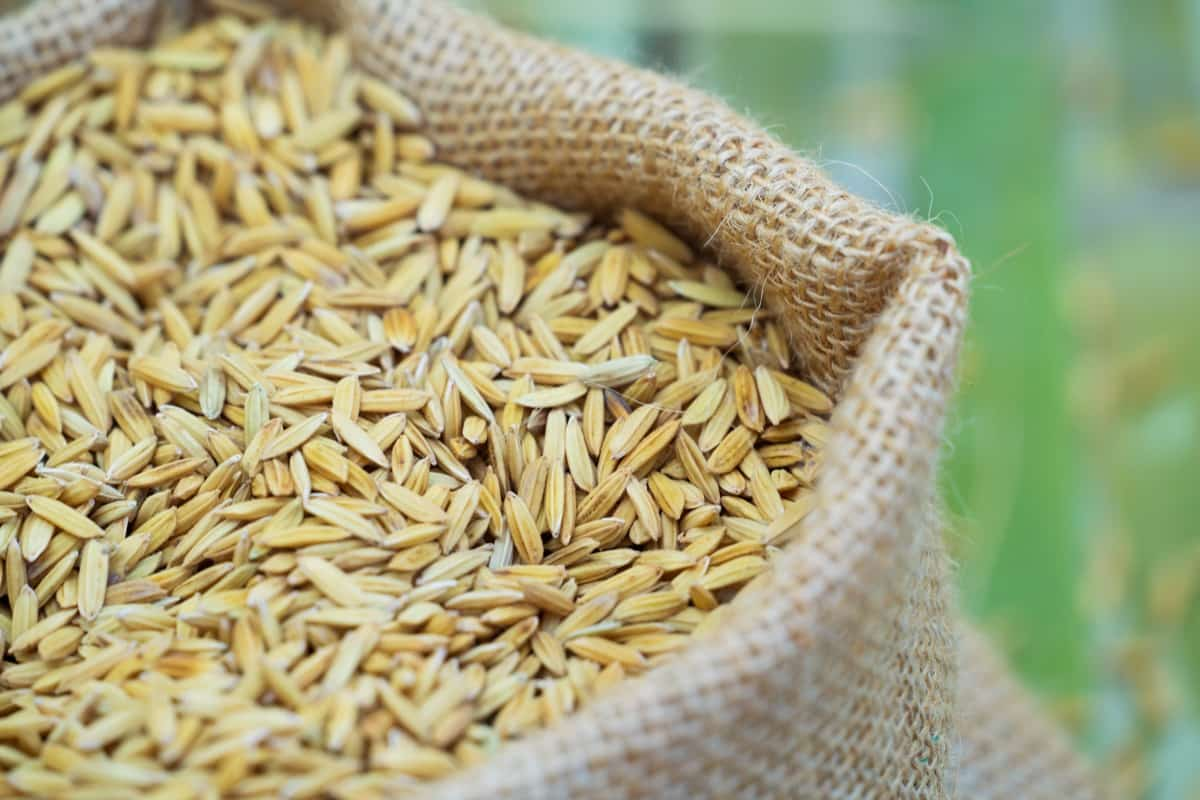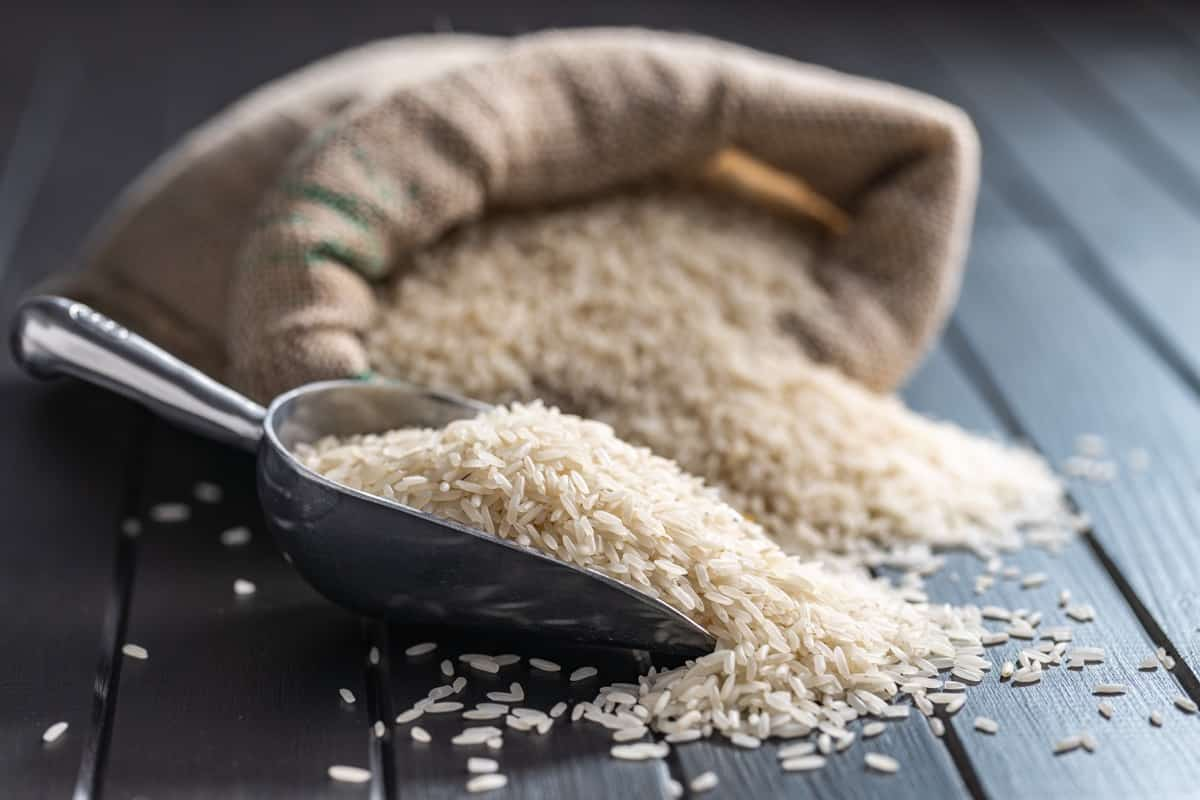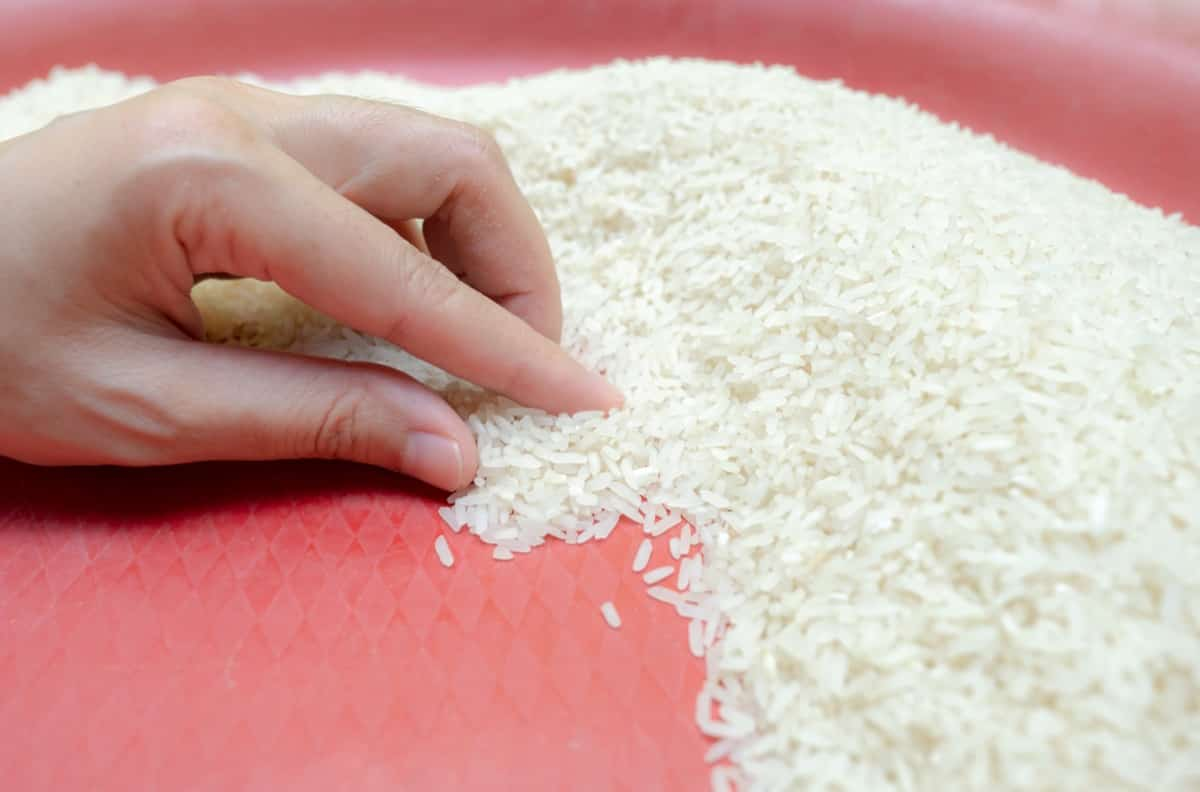Rice is one of India’s most important staple foods consumed by a large population. This article will discuss the steps in starting a rice mill business in India. Below we learn how to set up a rice mill business in India, a Rice Mill business investment and profit margin, a Rice mill business plan, and a step-by-step guide on how to start a rice mill in India.

What is the Process involved in a Rice Mill?
- Cleaning and removing impurities: The paddy rice is first cleaned to remove impurities such as dust, stones, and straw. This is usually done using a pre-cleaning machine or an aspirator.
- Husking or dehusking: The husk removal from the paddy rice is called husking or dehusking. This is done using a rice huller, a machine that uses mechanical force to remove the husk.
- Separation of husk and rice: The separated husk is removed from the machine, while the brown rice (unpolished rice) remains in the huller. The brown rice is then further processed to separate it from the remaining husk, which is done using a paddy separator.
- Polishing: The brown rice is then polished using a polishing machine to give it a shiny appearance. This process involves removing the outer layer of the rice grain, known as the bran layer, to create white rice.
- Grading and sorting: The polished rice is then graded and sorted according to size and quality using a grading machine. This helps to separate broken rice, which is of lower quality and value.
- Packaging: The final step in the rice milling process is packaging the polished rice into bags or containers for distribution to wholesalers, retailers, or consumers.
How to Start a Rice Mill Business in India: A Step-by-Step Guide
Market Research
The first step to starting a rice mill business is to conduct market research. This involves identifying the demand for rice in your target market, identifying your competitors and their pricing, and understanding the government policies and regulations related to the rice milling industry.
Business Plan
Once you have conducted your market research, the next step is to create a business plan. This should include your financial projections, marketing strategies, operational plan, and management structure. It is important to ensure that your business plan is well-researched and realistic.
Location and Infrastructure
The location and infrastructure of your rice mill will play a crucial role in the success of your business. You must choose a location that is easily accessible to your target market and has good transport links. You must also invest in the necessary infrastructure, such as a building, machinery, and equipment.
In case you missed it: How to Start a Livestock Feed Production: A Profitable Agriculture Business

Licensing and Permits
Starting a rice mill business in India requires various licenses and permits from the government. These include registration with the Registrar of Companies (ROC), obtaining a trade license, and getting a Pollution Control Board (PCB) certificate. You must also comply with other regulations, such as food safety standards and labor laws.
Procuring Raw Material
The main raw material for a rice mill business is paddy. You will need to source good quality paddy from farmers or suppliers. Building strong relationships with your suppliers is important to ensure a consistent supply of raw materials.
Setting up the Rice Mill
Once you have procured your raw material, the next step is to set up your rice mill. This will involve installing the machinery and equipment, including the rice huller, paddy separator, and polishing machine. You will also need to hire and train staff to operate the machinery.
Marketing and Sales
Finally, you must develop a marketing and sales strategy to promote your rice mill business. This can include advertising in local newspapers and social media, participating in trade fairs and exhibitions, and building relationships with wholesalers and retailers in your target market.
Frequently Asked Questions About Rice Mill Business in India
How Much Land is required to Start a Rice Mill Business in India?
Typically, a small-scale rice mill operation can be started with a land area of around 2000 to 5000 square feet, which can house the milling equipment, storage facilities, and office space. However, a medium to large-scale rice mill may require a land area of up to 2-3 acres or more, depending on the capacity of the mill and the quantity of rice to be processed. A detailed study and business plan can help determine the appropriate land size and other requirements to start and operate a successful rice mill business in India.
What is the Rice Mill Plant Setup Cost in India?
The setup cost of a rice mill plant in India varies depending on several factors, such as the size of the plant, location, and type of equipment used. Generally, a small-scale rice mill plant with a capacity of 1-2 tons per hour can be set up with an investment of around Rs. 5-10 lakhs.
However, a medium to large-scale rice mill with a capacity of 10-20 tons per hour may require an investment of up to Rs. 50 lakhs or more. The cost includes land, building, machinery, labor, and raw materials expenses. Additionally, ongoing expenses such as electricity, water, and maintenance costs should be considered while estimating the setup cost of a rice mill plant in India.
What is the Rice Mill Business Profit Margin in India?
The profit margin in the rice mill business in India can vary based on various factors, such as the size of the mill, the location, the cost of raw materials, and the selling price of the final product. However, on average, a rice mill business in India can expect a profit margin of around 10-12% of the total revenue generated. This may not seem like a big profit, but the rice demand in India is always high, so anyone willing to invest in it can make a lot of money.
In case you missed it: How to Start a Cold-pressed Oil Business in India: A Profitable Agriculture Idea

Conclusion
In conclusion, starting a rice mill business in India can be profitable if done correctly. Conducting thorough market research, creating a well-researched business plan, obtaining the necessary licenses and permits, and investing in the necessary infrastructure and machinery are important. With a good marketing and sales strategy, you can build a successful rice mill business and contribute to the food security of your country.
- Feed Your Flock for Less: Top 10 Tips to Save on Chicken Feed
- Ultimate Guide to Ossabaw Island Hog: Breeding, Raising, Diet, and Care
- Hatching Answers: The Top 10 Reasons Your Chickens Aren’t Laying Eggs
- Eggs and Economics: Breaking Down the Cost of Raising Backyard Chickens
- Defend Your Greens: Proven Methods to Keep Iguanas Out of Your Garden
- Ultimate Guide to Cinnamon Queen Chicken: A Comprehensive Guide for Beginners
- Ultimate Guide to California Tan Chicken: Breeding, Raising, Diet, Egg-Production and Care
- Ultimate Guide to Marsh Daisy Chicken: Breeding, Raising, Diet, and Care
- 10 Types of Chicken Farming Businesses You Can Start for Profits